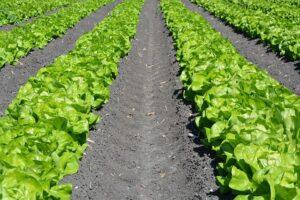Chain-based thinking is important in the development of the food industry
The most important goal of the food industry in the coming years is for people to have access to even more safe, high-quality Hungarian food – stated Dr. Beáta Felkai, Deputy Secretary of State responsible for food chain supervision at the Ministry of Agriculture in the “Technical, technological and economic challenges in the 21st century” conference in Szeged.

(Photo: Pixabay)
The deputy state secretary drew attention to the fact that it is extremely important to define strategic goals and tools for the entire food chain during future development. Delivery from raw material production to consumers must be considered a single process, as the chain is thus complete. The government also represents this approach, since the food industry and trade policy belong to the Ministry of Agriculture, a state secretariat within it. This direction corresponds to the approach characteristic of the Farm to Fork strategy of the European Union.
Dr. Beáta Olga Felkai added that Hungary’s food industry is a heterogeneous sector, consisting of nearly 3,900 enterprises
The sector’s sales revenue has been growing for years, and in 2021 it generated HUF 4,500 billion. 90 percent of the enterprises operate within the framework of micro and small enterprises and 10 percent are medium and large enterprises, which are able to produce a large amount of goods.
In the current support period, HUF 750 billion was allocated to food industry developments from the Rural Development Program alone
This also shows that the major agricultural policy task of the coming years is to strengthen the domestically owned food industry and supply chains. The goal is to increase the proportion of domestic products and increase export performance, so that the Hungarian food industry is recognized with high added value, both domestically and internationally. The deputy state secretary emphasized that in recent years, due to covid and inflation, shopping habits have changed, with this in mind, the Ministry of Agriculture constantly communicates with the National Food Chain Safety Office and other industry actors, and together they bring the changing regulation that adapts to market needs and decisions.
AM
Related news
Avian influenza has appeared in a new farm in Csongrád-Csanád County
🎧 Hallgasd a cikket: Lejátszás Szünet Folytatás Leállítás Nyelv: Auto…
Read more >Inflation has dropped significantly, a cycle of interest rate cuts may begin, while gold soars
🎧 Hallgasd a cikket: Lejátszás Szünet Folytatás Leállítás Nyelv: Auto…
Read more >The guarantee of support for farmers is the preservation of an independent, autonomous agricultural policy
🎧 Hallgasd a cikket: Lejátszás Szünet Folytatás Leállítás Nyelv: Auto…
Read more >Related news
Festival buzz at the 60th anniversary EuroShop trade fair
🎧 Hallgasd a cikket: Lejátszás Szünet Folytatás Leállítás Nyelv: Auto…
Read more >No matter how much you save, food and gadgets always take the money
🎧 Hallgasd a cikket: Lejátszás Szünet Folytatás Leállítás Nyelv: Auto…
Read more >







